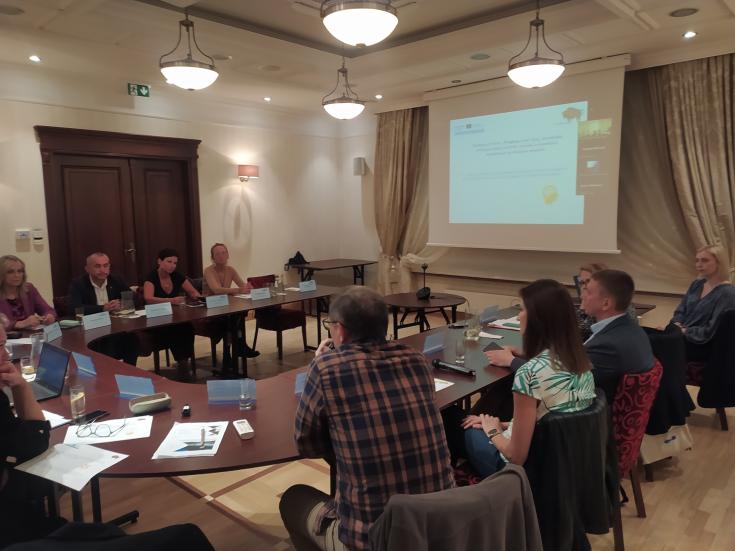Podlaskie's First Steps towards Rural Resilience!

On October 4th, 2023, the Podlaskie Voivodeship in Poland hosted its first Local Stakeholder Workshop, aiming to engage local and regional stakeholders in enhancing resilience and addressing the challenges in rural areas.
Stakeholders from the Institute of Sociology University of Białystok, Association of Rural Municipalities of Podlaskie Voivodeship, Podlaskie Network of Local Action Groups, Podlaskie Office for Spatial Planning in Białystok, Poviat Starosty in Hajnówka, and the Department of Agriculture and Rural Development of the Marshall Office of Podlaskie Voivodeship gathered to discuss three critical questions:
- The local level challenges in Podlaskie regarding the quality of life in rural areas and the factors exacerbating these issues.
- Examples of social innovation and civic engagement in rural areas in the context of depopulation implemented in the Podlaskie Voivodeship.
- Ideas for tackling the challenges of rural depopulation in the Podlaskie Voivodeship.
Podlaskie's Rural Hurdles
Podlaskie Voivodeship faces critical challenges impacting its rural communities, similar to those in South Savo, Finland. The region is confronted with job scarcity in remote areas, underdeveloped tourism and infrastructure, inadequate living conditions, and the daunting task of retaining educated, socially engaged individuals. It also strives for enhanced trust and cooperation across sectors and aims to empower residents in local governance, reflecting a need for streamlined bureaucratic processes.
Charting a Course for Resilient Rural Revival
Stakeholders suggested boosting tourist development and encouraging remote or hybrid working options as ways to address job scarcity and economic stagnation. By supporting neighbourhood businesses and generating jobs, these initiatives hope to retain and attract residents. Strategies to boost the population and handle the demographic difficulties include integrating immigrants and refugees and repopulating rural regions through resettlement incentives.
Improving transport accessibility and developing a good internet network can significantly enhance living conditions, making remote areas more attractive for residents and businesses alike. To leverage the region's distinct potential and strengthen its identity and economic sustainability, it would be beneficial to create a local product and identify individuals who possess the requisite temperament for local leadership.
Establishing municipal civic budgets and spaces for learning and social interaction are essential to promoting social involvement and empowerment. These initiatives strengthen people's sense of duty and belonging by enticing them to actively engage in the development of their communities. Encouraging young people's involvement in decision-making and creating appropriate developmental conditions can help retain the younger demographic, injecting vitality and innovation into the region.
Good Practices in Podlaskie
- Civic Budgets: Citizens directly decide on public budget spending.
- Rural Housewives' Clubs: Preserve traditions and organise community events.
- Folk Fairs: Promote and sell local food and handicrafts.
- Podlaskie Local Product Centre: Protect and promote quality local food.
- Local Events: Increase community cooperation and participation.
- Hajnówka OdNowa Project: A comprehensive city development plan focused on economic growth and improved living standards.
The workshop concluded with stakeholders expressing their satisfaction and commitment to continuing their involvement in the CASPER project, highlighting the meeting's success in fostering an open and collaborative environment. These discussions and shared practices are crucial stepping stones as Podlaskie moves towards a more connected, resilient, and thriving future.